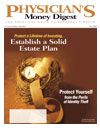Protect Your Assets for Future Generations
The concentration of wealth inAmerica is moving toward anapex as parents of the 80 millionbaby boomers begin to pass awayand leave their wealth to their children.Combine this concentration ofwealth with the malpractice litigationcrisis in this country, and you have agreat reason to consider advancedstrategies for protecting the assets thatyou intend to pass along to your heirs.
Most parents will direct their entireestate to their adult children outright.But if the children are minors, parents typically opt to holdestate assets in a trust until their children reach the age ofmajority, which is age 21 in most states.Yet this estate planningstrategy will still subject the parents' assets to children's futureliability risks, such as court judgments and divorce settlements.
To address this situation, many people are now choosing tocreate a family legacy trust in their will instead of leavingassets to their children outright. During your child's lifetime,they will receive all of the trust income and can have reasonableaccess to the principal of the trust as well. Not only canthis type of trust last through their children's lifetime, but youcan leave a lasting legacy to future generations of heirs.
This trust has a number of key advantages. First, the assetsin the trust are not subject to the claims of creditors. If yourchild is sued, the plaintiff can be awarded your child's assetsbut not the assets of the trust. In addition, the trust assets cannotbe included as part of your child's divisible assets shouldthey divorce. By including special language in your trust document,your assets will not be subjectto estate taxes upon your child'sdeath (subject to limitations).
What is the downside to setting upa family legacy trust? First, most childrenprefer to inherit their parents' fortune outright. It is only natural forthem to want full control, and mostpeople think that lawsuits and divorceare events that happen to others, notthem. But since it is your assets atstake, you need to decide if you thinkyou should protect your lifetime ofhard work from very real threats.
Second, a trust does require administration and tax filings,all of which cost money. I would suggest that this price is wellworth the peace of mind that comes with knowing that yourhard-earned wealth will be preserved to provide a floor offinancial security for future generations.
The family legacy trust is a complex document. Physiciansshould seek the assistance of an attorney who specializes inestate law to create a trust. To find an estate law attorney inyour area, an excellent source is the American College of Trustand Estate Counsel (www.actec.org).
Stewart H. Welch III, CFP®, AEP, is the founder of the Welch Group, LLC,which specializes in providing fee-only wealth management services toaffluent retirees and health care professionals throughout the UnitedStates. He is the coauthor of J.K. Lasser's New Rules for Estate and TaxPlanning (John Wiley & Sons, Inc; 2001). He welcomes questions orcomments at 800-709-7100 or visit www.welchgroup.com. This article was reprintedwith permission from the Birmingham Post Herald.
